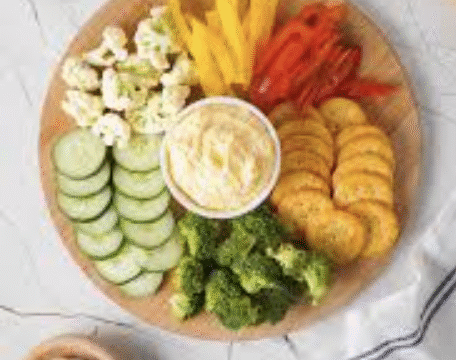Making healthy choices starts at the grocery store.
A well-planned haul can set you up for a week (or more!) of nutritious meals, fewer impulse purchases, and less food waste.
Whether you’re stocking up for a busy week or just starting to eat healthier, here’s how to build a smart, balanced grocery haul that supports your wellness goals.
1. Start with a List
Create a weekly meal plan and build your grocery list around it. This prevents random purchases and ensures you only buy what you need. Organize your list by sections (produce, pantry, refrigerated, frozen) for quicker shopping.
2. Focus on Whole Foods
Choose items with minimal processing:
-
Fruits & Veggies: Aim for a rainbow — leafy greens, berries, root veggies, and seasonal options.
-
Whole Grains: Brown rice, quinoa, oats, and whole wheat bread or pasta.
-
Legumes: Canned or dried beans, lentils, and chickpeas.
-
Lean Proteins: Eggs, tofu, plain Greek yogurt, and frozen fish or poultry.
-
Healthy Fats: Avocados, nuts, seeds, and olive oil.
3. Shop Smart in the Middle Aisles
The center of the store can offer healthful, budget-friendly staples:
-
Unsweetened plant-based milks
-
No-sugar-added nut butters
-
Low-sodium broths
-
Canned tomatoes or tuna
-
Whole grain crackers or cereals (check for fiber and low added sugar)
4. Keep Healthy Snacks on Hand
Instead of processed chips or candy, consider:
-
Air-popped popcorn
-
Raw nuts and seeds
-
Sliced veggies with hummus
-
Dried fruit (in moderation and with no added sugar)
5. Read Labels Carefully
Look for:
-
Short ingredient lists
-
Low added sugar
-
Low sodium
-
No artificial additives
Avoid deceptive marketing terms like “natural” or “light” without checking the nutrition facts.
6. Don’t Skip the Freezer Section
Frozen produce is just as nutritious and often more affordable than fresh. Stock up on:
-
Frozen berries or mango for smoothies
-
Mixed vegetables for stir-fries or soups
-
Pre-cut frozen greens for quick sides
7. Buy What You’ll Actually Use
Avoid wasting money and food by buying realistically. If you don’t usually cook with kale or millet, try just one new item a week to expand your habits gradually.
8. Consider Store Brands and Bulk Bins
Store brands often offer the same quality for less. Bulk sections are great for grains, nuts, and dried fruit, helping you buy exactly how much you need without extra packaging.
Conclusion: Set Yourself Up for Success
A smart grocery haul is more than a shopping trip — it’s a commitment to nourishing yourself with practical, budget-friendly choices. With just a little planning, you can stock your kitchen with foods that support a healthy lifestyle all week long.




